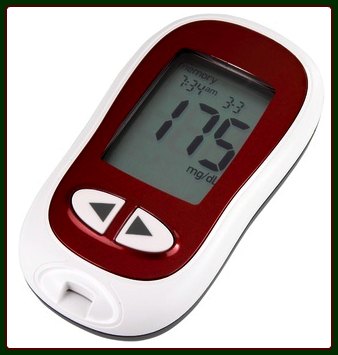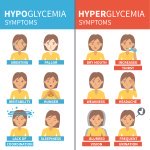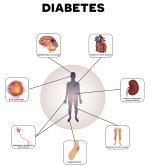3 Common Symptoms of High Blood Sugar
The most common symptoms of high blood sugar are:
- Fatigue
- Excessive thirst
- Frequent trips to the bathroom

One of the initial symptoms that indicates that you may have high blood sugar is fatigue. For no apparent reason, your spark is just no longer there.
Why does high blood sugar make you tired? Because high blood sugar is an indication that the sugar in your blood is unable to enter your cells. It means the sugar circulating in your blood isn’t able to fuel the cells of your body. If glucose is unable to get into your cells, they are deprived of their basic fuel and you lose your energy. This results in you feeling inexplicably tired.
You may also find that you are becoming increasingly thirsty Along with drinking a surprising amount of water, you may notice that you are making an increasing number of trips to the bathroom to urinate. This happens because your body will attempt to dilute the sugar levels in your blood when they get too high. If you are insulin resistant, this
Weight loss is perhaps the most surprising of the symptoms of high blood sugar. In this case, weight loss is not a good thing. It means that your cells are in essence starving. Nutrients cannot enter your cells so your body is malnourished. Yes, even if you are eating plenty of food, the nutrients in the food and the fuel are unable to get where they are needed.
Symptoms of High Blood Sugar Explained
It is important to know that the normal amount of sugar in your blood is approximately one teaspoon. Equally important to know is that food that is high in simple carbohydrates digest quickly and are rapidly absorbed into your bloodstream.
For example, if you drink a glass of orange juice which contains eight teaspoons of sugar and no fiber, the sugar in the juice will rapidly be absorbed into your bloodstream. So if the eight teaspoons of sugar from the orange juice were to be absorbed into your bloodstream unmetabolized, you would rapidly go into a hyperglycemic coma and die.
Fortunately, your pancreas saves the day by quickly secreting large amounts of insulin to process all that sugar.
Insulin is a hormone that binds to receptors on your cells in order to activate glucose transporters that grab the sugar molecules and bring them inside your cells. Your cells only have a limited capacity for sugar to enter and excess sugar is stored as fat. Not only is insulin a fat-building hormone, but when secreted in excess (like when you eat alot of carbohydrates) is also increases your cholesterol, increases your blood pressure and causes the linings of your arteries to thicken.
Assuming that your body processes sugar normally… after insulin comes to the rescue, your blood sugar levels rapidly drop.
Because in this example you only drank the orange juice with no other food, your blood levels would spike quickly and then drop rapidly due to the action of insulin. This spike followed by a rapid drop in blood sugar will often cause you to feel ravenously hungry and may even make you temporarily hypoglycemic and cause you to feel shaky. Hunger is one of the primary symptoms of high blood sugar.
Because we typically eat a diet filled with simple carbohydrates and we are under alot of stress related to modern day life, many people suffer from insulin resistance, pancreatic problems, metabolic syndrome, and type two diabetes and do not know it. Their blood sugar levels will go higher than normal (example above 140 mg/dL) and will drop more slowly than normal, instead they will stay high, causing a variety of health problems long term.
Do you have High Blood Sugar Levels?
One easy way to find out whether or not your symptoms of high blood sugar are an indication that your health is being compromised is to buy an over-the-counter blood glucose meter and test your blood sugar levels. The following blood sugar levels indicate that your blood sugar metabolism and diet are not going to deliver optimal health:
- Your fasting blood sugar is over 100 mg/dL (5.6 mmol/L )
- Your blood sugar goes above 140 mg/dL 30 minutes to an hour after eating
- Your blood sugar takes longer than two hours to go back down below 100 mg/dL (5.6 mmol/L)



New! Facebook Comments
What do you think? Share your thoughts below...